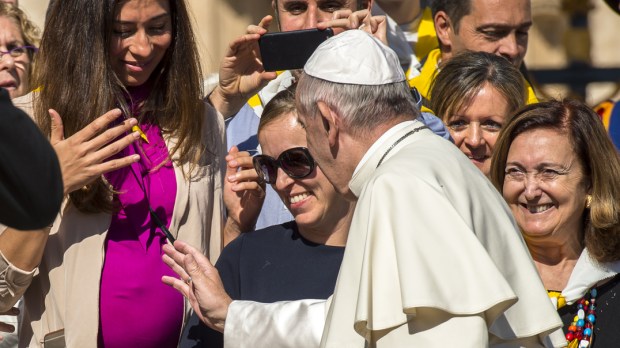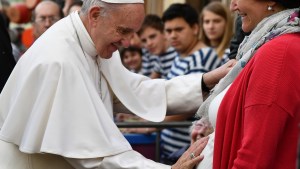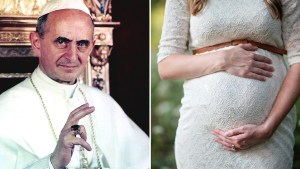In the third major interview of this summer (after speaking with an Argentinean outlet and Reuters), Pope Francis has spoken with Mexico’s Univision.
As is typical for papal interviews, the conversation touched on a variety of topics. One was the pro-abortion stance of US President Joe Biden, who is Catholic.
The pope said, “I leave it to his conscience and that he speaks to his bishop, his pastor, his parish priest about that inconsistency.”
This comment is in line with what the pope has consistently said about the problem of pro-abortion politicians.
The Holy Father has spoken out countless times against abortion, saying that it is not a religious issue, but a scientific one, and comparing it to hiring a sniper or hitman to kill off a problem.
He reiterated this same position, noting the scientific reality of the embryo, its DNA and development of organs.
“Based on scientific data,” he said, “abortion is not a question of if it seems good to me or doesn’t seem good to me. It’s a way of acting that has a scientific implication. That’s certain. Thus, this isn’t negotiable. I’ll never be convinced that at a certain point, it’s better or it isn’t. It’s a scientific fact.”
Communion and pastoral issues
Speaking July 2 with Reuter’s Philip Pullella, the pope used that image he’s often called on: Abortion is like hiring a hit man.
Regarding his thoughts on pro-choice politicians, the pope says that the key issue for bishops is to be pastors.
Nancy Pelosi, Speaker of the House, has been asked by her bishop to refrain from receiving Communion. However, on vacation in Rome, she received the Eucharist from a priest who was distributing Communion at a June 29 Mass attended by Pope Francis for the feast of Peter and Paul.
“When the Church loses its pastoral nature, when a bishop loses his pastoral nature, it causes a political problem,” the pope told Pullella. “That’s all I can say.”
Further explanation
Francis spoke more thoroughly about the issue in 2021 on his return from Slovakia.
Communion, the pope said, drawing from the word itself, is for those “in the community” of the Church.
Then, those who are not in the community cannot receive communion […]. Why? Because they are out of the community – ex-comunitate – excommunicated they are called. It is a harsh term, but it means that they are not in the community, either because they do not belong to it, they are not baptized or have drifted away for some reason.
The Eucharist can’t be received by those who are not in the communion, the community, “and this is not a punishment,” he said, but simple because, “Communion is uniting yourself to the community.”
The problem is not a theological problem, that’s simple. But it is a pastoral problem: how we bishops manage this principle pastorally.



